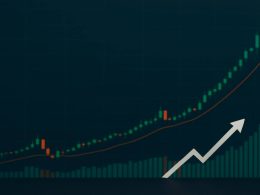Despite significant progress in the cryptocurrency landscape, Australian users continue to encounter substantial banking barriers when interacting with exchanges and crypto businesses. A recent survey conducted by Binance reveals that a staggering 58% of Australians desire unrestricted access to deposit funds into exchanges, while 22% have switched banks to facilitate easier cryptocurrency purchases. As of 2025, industry leaders argue that the government must establish clear regulations to help distinguish between legitimate and illegitimate actors in the crypto market.
Matt Poblocki, general manager of Binance’s operations in Australia and New Zealand, emphasized that seamless access to financial services is crucial for fostering participation and confidence in the market. He noted that existing banking obstacles hinder adoption and restrict growth within the sector. Despite the regulatory advancements made in recent years, Australian crypto users still face challenges when dealing with traditional financial institutions.
In 2018, Australian crypto exchanges were required to comply with Anti-Money Laundering (AML) laws, mandating registration with the Australian Transaction Reports and Analysis Centre (AUSTRAC). Furthermore, the country introduced its first exchange-traded fund (ETF) for Bitcoin (BTC) in June 2024, followed by an ETF for Ether (ETH) in October 2024. However, the advent of these innovations has not eliminated the difficulties users face in accessing banking services.
On Tuesday, crypto exchanges Coinbase and OKX expanded their services to include self-managed superannuation funds, marking a significant step in integrating cryptocurrency into Australia’s retirement savings framework. Kate Cooper, CEO of OKX Australia, has observed firsthand the persistent denial of banking services to crypto businesses, which often leads customers to seek alternative solutions. She stated,
“We regularly field phone calls from customers asking, ‘What bank do you know that will allow me to do this? How do I do it? What are my options?’”

The Commonwealth Bank of Australia, the nation’s largest bank, has imposed a monthly limit of 10,000 Australian dollars (approximately $6,527) on customer transactions to crypto exchanges. In response to these issues, AUSTRAC released updated guidance in March 2025, clarifying that banks are not required to impose blanket bans on cryptocurrencies.
Jonathon Miller, general manager for Kraken in Australia, reported that many clients and employees have lost access to their accounts due to engagement with the crypto ecosystem. This phenomenon, known as debanking, involves banks terminating accounts for individuals or organizations flagged as potential risks. Notably, a similar practice was observed during Operation Chokepoint in the United States.
Miller explained that local exchanges and startups often face concentration risks since only a limited number of banks are willing to collaborate with them. Poblocki echoed this sentiment, highlighting that while users can buy and sell crypto on Binance using credit or debit cards, they cannot deposit or withdraw Australian dollars via bank transfer. He referred to this as a broader industry challenge rather than an isolated incident.
Cooper reiterated that debanking remains a significant issue for the Australian crypto sector. She believes that the most effective solution to these persistent roadblocks will be the introduction of fit-for-purpose legislation. The Australian government, under the center-left Labor Party, has proposed a new regulatory framework for crypto exchanges, aiming to address debanking issues ahead of the federal election earlier this year.
Miller emphasized the need for clear legislation and regulatory guidance to combat the issue of debanking while also advocating for an end to restrictions affecting the crypto industry. He stated,
“What’s needed instead is a more nuanced approach to due diligence — one that distinguishes between bad actors and legitimate businesses building responsibly.”
As we move forward in 2025, it is evident that collaboration between government, banks, and the industry is essential to provide the necessary regulatory clarity for the crypto landscape in Australia.
For further insights, visit the original article on Cointelegraph.








